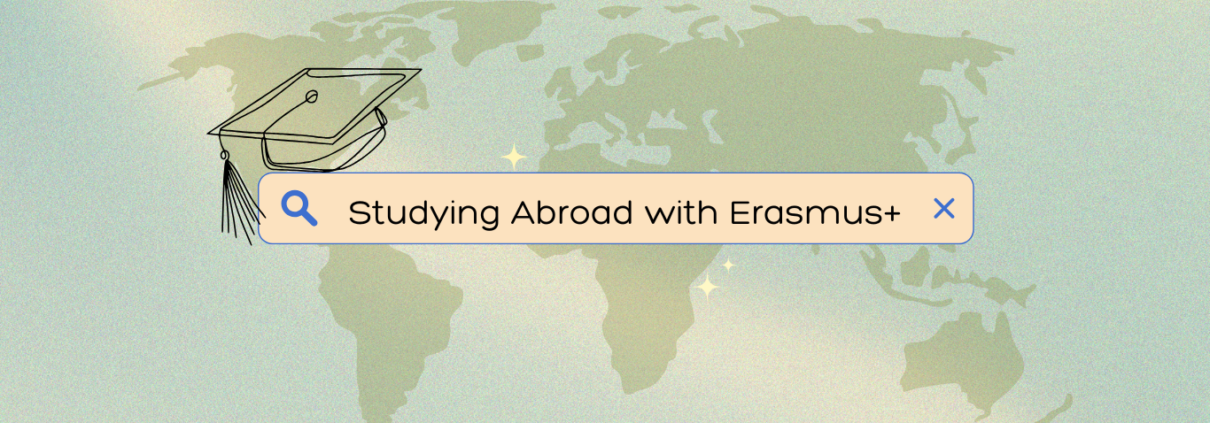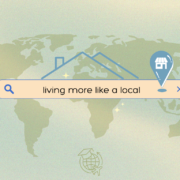Studying Abroad with Erasmus+
It’s been a little over a month now – the moment when I stood at the airport with my packed suitcases and mixed feelings of joy and nervousness in my stomach, ready for my Erasmus adventure. But the adventure began long before this moment, namely with the planning. It was over a year ago that I first thought about transferring my studies abroad for a semester. At the time, I naturally had a lot of questions and uncertainties, but because I was on the Erasmus+ program, I not only had financial support but also support throughout the whole process. That’s exactly what my Study Abroad Diary will be about today: the Erasmus+ program and how it makes sense to use it for a semester abroad.
What is Erasmus+?
Erasmus+ is a program of the European Union to promote education, youth, and sport. It enables students, teachers, and trainees to study, teach or gain practical experience in another European country. The aim is to improve the quality of education, promote intercultural dialog and increase participants‘ career opportunities.
How does a stay abroad with Erasmus+ work?
For students who want to spend a semester or a whole academic year abroad, Erasmus+ offers financial support and organizational help. A typical process for planning a stay abroad with Erasmus+ can look like this:
1. Information and advice: First of all, you should contact the International Office at your home university, or go to events of the Erasmus program. There you will receive information about the partner universities of your home university, application deadlines and requirements.
2. Application: The application is then made via the home university. In addition to completing an application form, a letter of motivation, proof of language proficiency and study plans must be submitted.
3. Selection and nomination: After a successful application, the home university nominates the student for a place at the partner university.
4. Preparation: Then it’s time to start preparing, which you do mostly on your own, including things like attending language courses if necessary, looking for accommodation (where you usually get support from the host university) or taking out insurance. After these preparations, there are also things like the Learning Agreement and the Grant Agreement, which are completed online via „mobility online“, and the respective Erasmus representative from your department is always available for questions and help. This may sound overwhelming and complicated but don’t worry, it’s not as complicated as it sounds!
5. Stay abroad: During your stay abroad, you will attend lectures and seminars at the host university and can usually have the credits earned there recognized at your home university (this is what the Learning Agreement is for).
6. Follow-up: After returning home, the credits earned abroad are recognized. Experience reports are also sometimes requested.
Financial support:
Erasmus+ provides monthly grants, the amount of which can vary depending on the destination country and also depending on the year. These grants are intended to cover the additional costs incurred during the stay abroad. In addition, students with special needs or from financially weaker backgrounds can apply for further funding.
Finally, I would also like to share my own experience and perspective. For many of you, some of the steps may sound very overwhelming and like a lot of work. But from my own experience, I can reassure all those who are afraid of a semester abroad because everything sounds too much! Yes, it also sounded a lot to me at the beginning, especially when you are faced with this mountain of to-dos, you think that it might be better not to do it after all. But with the Erasmus program, you’re not on your own and you always have support, so you get a chance to try something without being alone on this path. As the process starts early, it usually begins a year in advance and the tasks that need to be completed are also well distributed. Only towards the end, i.e. around three or two months before your stay, does it get a little more hectic with completing the to-dos (for example the Learning Agreement or the Grant Agreement), but if you always plan everything carefully and don’t let anything slip, this shouldn’t be a problem. So my little appeal to all those who are still hesitating, take courage, the initial uncertainties will all disappear as soon as you start, and it will be worth it!
If you have any further questions or opinions, please let us know in the comments!
See you in the next chapter of my „Study Abroad Diary“ and greetings from Oslo!









Hinterlasse einen Kommentar
An der Diskussion beteiligenHinterlasse uns deinen Kommentar!